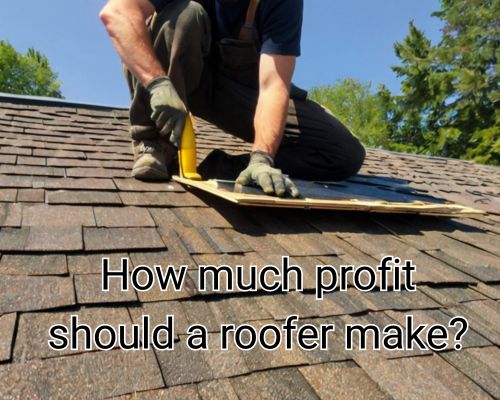If you’re planning a roofing project in New Jersey, one question inevitably pops up: Can you negotiate roof price? The answer is a resounding yes. Negotiating the price of a new roof isn’t just possible—it’s practical, and in a high-cost region like New Jersey, it’s also financially smart. Whether you’re in Jersey City, Toms River, or the suburbs of Bergen County, learning the ins and outs of roofing cost negotiation can save you thousands of dollars while securing top-quality work.

With CJ Commercial Roofing NJ, we’ll break down what goes into roofing costs, the key leverage points in negotiations, common pricing factors in the Garden State, and how to land the best deal without sacrificing quality or materials.
Understanding Roofing Costs in New Jersey
Before you start the negotiation process, it’s crucial to understand what affects roofing costs in New Jersey. Prices vary significantly depending on a few core elements:
1. Roofing Material Type
- Asphalt shingles are the most common and affordable, averaging $3.50 to $5.50 per square foot.
- Metal roofing in areas like Newark or Princeton ranges from $7 to $12 per square foot.
- Slate or tile roofs, seen in luxury homes in places like Short Hills, can climb to $20+ per square foot.
2. Roof Size & Pitch
A 2,000 sq ft roof will obviously cost more than a 1,000 sq ft one, but the slope (pitch) also affects labor intensity and safety—factors contractors calculate into their estimates.
3. Labor Rates in NJ
New Jersey’s labor rates are higher than the national average, with skilled roofing contractors like in CJ Commercial Roofing NJ typically charging $60 to $100 per hour. Local regulations, licensing, and insurance requirements also factor into labor costs.
4. Removal & Disposal of Old Roof
Tearing off an old roof in high-density towns like Hoboken or Clifton may come with extra disposal fees or permit requirements, pushing up costs by $1,000 to $2,500 depending on roof complexity.
So, Can You Negotiate Roof Price?
Absolutely. Most roofing contractors in New Jersey expect negotiations. The roofing industry, unlike fixed-cost retail, has some wiggle room, especially in competitive local markets like those in Middlesex or Monmouth County.
Here’s how to do it effectively:
7 Proven Strategies to Negotiate Roof Pricing in NJ
1. Get Multiple Estimates
Always compare quotes from at least three licensed roofers in your area. Use services like Angi, HomeAdvisor, or check Google reviews for contractors in Edison, Cherry Hill, or Trenton. Having multiple quotes helps you understand the price range and gives you leverage.
2. Ask for a Detailed Breakdown
Request a line-item estimate that separates materials, labor, permits, and contingencies. If you know the exact cost of underlayment or flashing, for example, you can spot inflated charges and push back intelligently.
3. Time Your Project Strategically
In New Jersey, spring and late summer are peak roofing seasons. Scheduling your project for late fall or winter (weather permitting) might score you off-peak pricing discounts when demand drops.
4. Bundle Additional Services
If you also need gutter replacement, attic insulation, or solar panel prep, bundle them into one project. Contractors are often willing to lower per-service pricing for bundled jobs, especially in competitive counties like Union or Camden.
5. Mention Competitor Pricing Tactfully
Let’s say a local roofer in Morristown offers $16,000, but another in Bridgewater quotes $14,200 for the same specs. Mentioning this (respectfully) can encourage the higher bidder to match or beat the lower quote.
6. Negotiate Payment Terms
Even if you can’t lower the price, you may negotiate better payment options. Ask about:
- 0% interest financing (many NJ roofers offer this)
- Deferred payments
- Cash discounts
You may also qualify for New Jersey Clean Energy rebates if your roofing system integrates energy-efficient features.
7. Inspect the Warranty Carefully
Contractors may offer different levels of warranty coverage. Negotiate for a longer workmanship warranty or enhanced product warranty from manufacturers like GAF or Owens Corning—two brands commonly used across New Jersey.
Salient Local Roofing Entities & Regulations
In New Jersey, roofing contractors must be registered with the NJ Division of Consumer Affairs and comply with the Home Improvement Contractors Registration Act. Before negotiating:
- Confirm the roofer is licensed and insured.
- Verify they follow OSHA safety standards.
- Check local permit requirements (which vary by city).
Also, homeowners in flood zones like Atlantic City or along the Jersey Shore should confirm that roofing materials comply with wind uplift ratings, especially for hurricane-prone areas.
Key LSI Keywords to Understand
For those optimizing their online research or comparing bids, here are relevant Latent Semantic Indexing (LSI) keywords often associated with roofing negotiations:
- roof replacement cost NJ
- best roofing contractors in New Jersey
- asphalt shingles vs metal roof
- GAF roofing warranty
- roofing permit cost in NJ
- roof financing options
- how to get roofing quotes
- New Jersey roofing laws
Incorporating these in your search or discussions ensures you’re informed and using language familiar to contractors and suppliers.
When Negotiation Might Not Work
There are times when price negotiation has limits:
- Insurance-covered roof replacements: If your roof is being replaced due to storm damage and is covered by homeowners insurance, the price is usually fixed by your insurer’s adjuster.
- Specialty or historical roofs: Homes in historic districts like Cape May may require specific materials or craftsmanship, leaving little room to negotiate.
- Material shortages or inflation: Supply chain issues can tighten contractor margins, reducing their flexibility.
Final Tips for Negotiating Roofing Prices in NJ
- Stay professional – Don’t treat contractors like salespeople. Build a relationship and respect their expertise.
- Don’t just chase the lowest price – A suspiciously low quote could indicate unlicensed labor or subpar materials.
- Focus on value, not just cost – Consider durability, warranty, aesthetics, and future energy savings.
Conclusion: Yes, You Can Negotiate Roof Price in NJ—Here’s How to Do It Smartly
In a state like New Jersey—where housing costs, property taxes, and contractor demand are all high—negotiating your roofing price is not just possible, it’s strategic. From the Jersey Shore to the Delaware Water Gap, homeowners who arm themselves with knowledge, obtain detailed quotes, and tactfully push for better terms can unlock significant savings without compromising quality.
So next time you ask, “Can you negotiate roof price?”—know that in New Jersey, the answer is an informed and confident yes.
Need a quote or want to compare prices? Search for top-rated roofing companies near Newark, Paramus, or Cherry Hill—and start negotiating smart.

